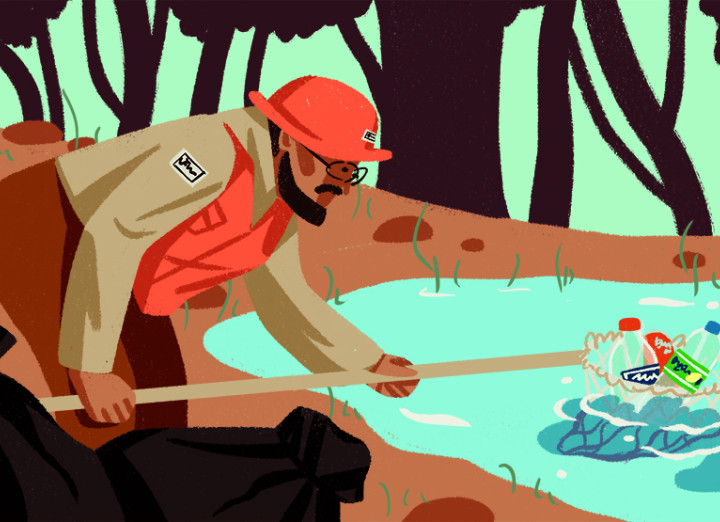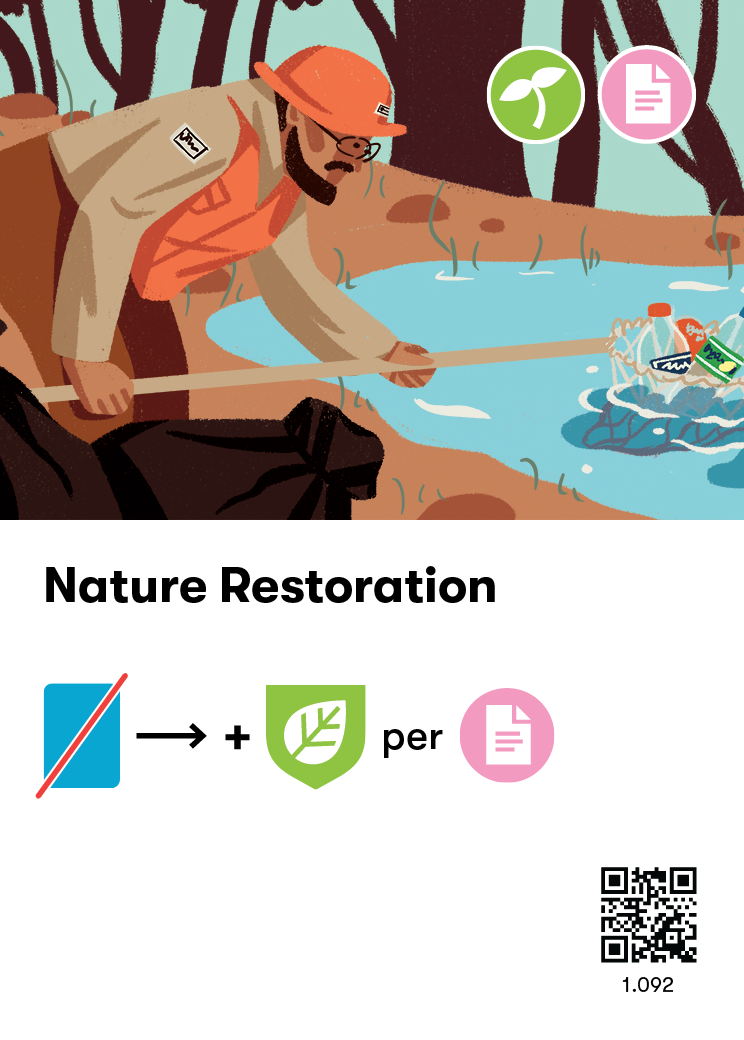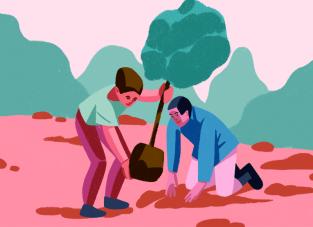Nature Restoration
Local Project
Nature restoration policies aim to improve the health and functioning of ecosystems, such as forests, wetlands, grasslands, marine and freshwater environments, that have been degraded or destroyed by human activities. Restoration projects include reforestation, water quality improvement efforts, restoration of degraded wetlands, wild species reintroduction, and promotion of regenerative farming practices.
Restoring degraded or destroyed habitats to a healthier state promotes the biodiversity of plant and animal species in these ecosystems. But restoring an ecosystem also mitigates the climate emergency, since these projects can prevent the release of greenhouse gas emissions into the atmosphere (if, for example, the area is set to be turned into a road or carbon-intensive area) while fostering the capacity of soils and ecosystems to store carbon. In addition, restoration programmes can provide economic benefits, such as supporting local tourism and recreational activities, and protect human health by improving water and air quality. Nature restoration projects can also improve urban environments, by expanding green spaces, reducing concrete areas, and tackling fertilizers and pesticides use.
Nature restoration efforts are growing. The UN established the Decade on Ecosystem Restoration, Europe is debating a law to repair 80% of the European habitats that are in poor condition, while the U.S. is running restoration programs such as the Land and Water Conservation Fund and the Conservation Reserve Program.
Discard 1 card from your hand, then add 1 Ecological Resilience token to your player board for each Regulation tag in this card's stack.

The UN Decade on Ecosystem Restoration 2021-2030 (UN Environment Programme, UNEP + Food and Agriculture Organization, FAO)
Advocate for nature restoration policies by writing to your elected representatives to express your support for nature restoration policies at local, national, and international levels.
Buy certified goods produced sustainably, such as timber, chocolate, coffee and paper products, helping to prevent deforestation and habitat destruction.
Support and volunteer with organizations working on restoration projects, encouraging friends and family to take similar actions to support restoration efforts.



